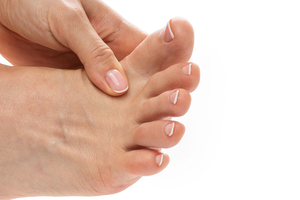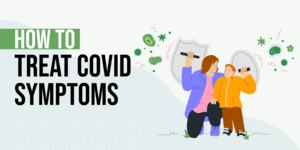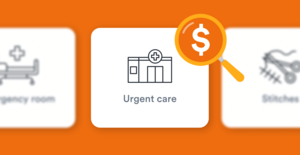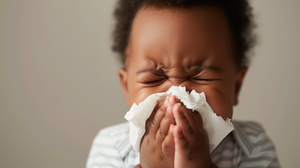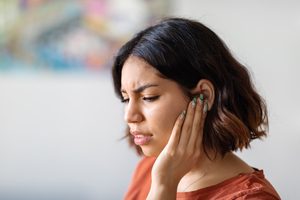Key points
- Older adults, especially those with underlying conditions, are at higher risk for severe illness from COVID-19, making visits during holidays risky.
- Precautions such as assessing risk, limiting exposure two weeks before the visit, and getting tested for COVID-19 can help ensure safe visits.
- During the visit, practicing social distancing, wearing face masks, avoiding shared living spaces, and not sharing utensils can help reduce the risk.
- If in-person visits are too risky, consider virtual visits or contactless activities like sharing family recipes or opening gifts via video chat.
- It gives ideas for celebrating Thanksgiving and Christmas, such as sharing family recipes, eating together via video chat, buying personalized gifts, opening gifts via video chat, and dropping off meals using contactless delivery.
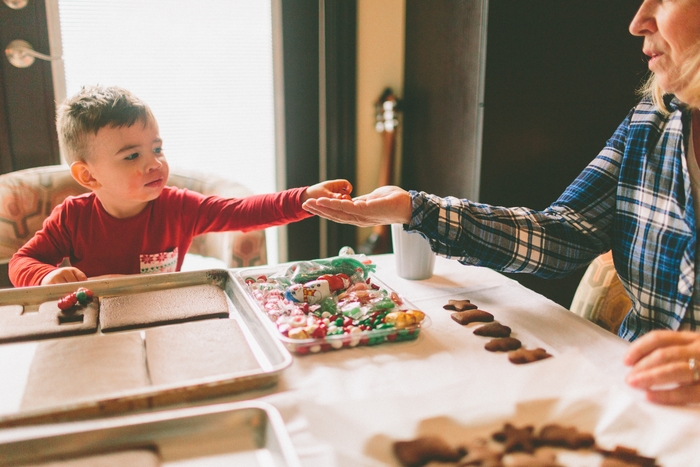
Now that the holidays are here and many COVID-related restrictions have been lifted across the country, many grandparents are feeling ready and anxious to visit with their grandchildren.
Unfortunately, older adults are at higher risk for severe illness from COVID-19 than their younger counterparts, which has made it difficult for grandparents to safely visit grandchildren during the pandemic. Though it may be risky for older adults to spend time with their younger loved ones during the COVID-19 pandemic, visits during the holidays can still be made possible if everyone takes the necessary precautions to stay safe and limit their exposure to the virus.
Here are steps your family can take when you’re ready to visit with grandparents and other older relatives during COVID-19 holidays.
Assess the COVID-19 Risk for the Grandparents
Before arranging any visits with grandparents, assess the possible COVID-19 risk based on age and on whether your relatives have any underlying medical conditions that may further increase their risk for severe illness from COVID-19.
The risk of severe illness from COVID-19 increases with age. The CDC reports that people aged 85 and older face the greatest risk of severe illness from COVID-19 and that 8 in 10 COVID-19-related deaths in the U.S. have been among adults aged 65 and older.
Your older relatives may be at even higher risk of severe illness COVID-19 if they have any of the following medical conditions:
- Diabetes (type 1 or type 2)
- Obesity
- High blood pressure
- Asthma
- Cancer
- Pregnancy
- Smoking
- Chronic kidney disease
- Liver disease
- Cystic fibrosis
- Pulmonary fibrosis
- COPD
- Dementia
- Weakened immune system
- Organ transplant
- HIV
- Serious heart problems
- Cardiomyopathy
- Heart failure
- Sickle cell disease
- Cerebrovascular disease
- Thalassemia
If your children’s grandparents are over the age of 65 and/or have one or more of the above underlying medical conditions, you may want to reassess whether it’s a good idea to visit in person during the holidays in 2020.
Take COVID-19 Precautions Two Weeks Beforehand
Symptoms of COVID-19 can show up anywhere between 2 and 14 days after exposure, which means that if you’ve been exposed to the virus a few days before visiting your kids’ grandparents, you may have COVID-19 and not even know it yet—putting your relatives at risk.
Try to limit your exposure to COVID-19 as best you can two weeks before your scheduled visit. Practice social distancing, wear a face mask, and limit outings or social gatherings. If possible, arrange to work from home to reduce the amount of time you spend near people from outside of your household. That way, when it’s time to visit the grandparents, you know that your chances of spreading COVID-19 are minimal and less likely.
Get Tested For COVID-19 Before the Visit

Consider having your family get tested for COVID-19 before visiting grandparents to confirm everyone is healthy. This will give each family member greater peace of mind. Many cities across the U.S. have sites that offer free COVID tests to anyone who wants one, while some cities are restricting COVID testing only to individuals at high risk for severe illness or who have recently been exposed to someone with COVID-19.
Look into local options for getting tested. If COVID testing isn’t available in your local area or you and your family members don’t qualify for testing, assess the infection rates where you live. If you live in a COVID hotspot or in an area where lots of new cases are reported every day, you may want to postpone visiting your children’s grandparents.
Prepare Your Children
Before visiting their grandparents, talk to your children about how this year’s visit will be different from previous visits in that physical contact will be limited. Your kids may be used to getting lots of hugs, snuggles, and kisses from grandma and grandpa, and may not understand why touching will be limited this year. Educate your kids about COVID-19, and explain the importance of social distancing and wearing face masks to protect their grandparents from the virus.
Travel By Car vs Plane if Possible
Though many airlines are now seating passengers at least 6 feet apart and requiring them to wear face masks, being on an airplane makes it difficult to keep a safe distance from flight attendants and other passengers. If possible, consider traveling by car instead of by plane, which will help limit in-person interactions and close distance with those outside of your household. Pack snacks and meals you can eat on the go (like sandwiches and wraps), and bring gloves and face masks to wear while stopping at restrooms and gas stations.
Make Grandparents Stay at Home
Some grandparents may be feeling antsy after sheltering in place and insist on traveling to visit you instead of letting you travel to them. However, this may be extremely risky for the grandparents, especially if they need to travel by plane.
Talk to your kids’ grandparents about the potential risks associated with traveling amid the COVID-19 pandemic, and insist that your family visit them. The fewer people your relatives come into contact with and the fewer public places they visit, the lower their risk will be for contracting COVID-19.
Practice Social Distancing and Wear Face Masks
Keep in mind that physical contact with anyone outside of your household should be limited to reduce exposure to COVID-19. Greet one another without touching, and continue to practice social distancing and wear face coverings during the entire visit. If you're visiting during mealtime, eat outside if weather permits. If not, plan to eat before or after your visit, so that you do not have to remove your mask inside while visiting with grandparents. Some people may feel extremely uncomfortable in regards to avoiding all physical contact with their loved ones, which is completely normal. However, taking these precautions will help keep everyone in your family safe and healthy.
Don’t Share Living Spaces
Staying with your relatives when you visit may be fun, convenient, and inexpensive, but doing so is very risky for both your family and the grandparents. Even if you quarantine for 14 days after arriving in town, experts still recommend staying in a nearby hotel or vacation rental to minimize COVID-19 exposure.
Before leaving home, research your options for hotels near your relatives and call the facilities to ask about their safety and sanitation policies related to COVID-19. Ask if your family can stay in a room that has been unoccupied for a few days, and consider cleaning and tidying up the room yourselves instead of allowing housekeeping services to enter the room. Also, avoid using community amenities during your stay such as the gym, hot tub, and swimming pool, as these amenities may not be sanitized as regularly as needed to reduce your exposure to COVID-19.
Limit Activities and Spend Time Outdoors

Most grandparents enjoy treating their grandchildren to fun outings such as going to museums, toy stores, and theme parks, but venturing to any public places can increase their risk for contracting COVID-19. Instead of visiting indoor public places or venues that attract large crowds, suggest that everyone limit activities to outdoor venues that provide plenty of free-roaming space.
Go to local parks, visit the zoo, go on hikes or long walks, or have picnics. You could even suggest that your children’s grandparents sit in their vehicles while they watch their grandchildren play outside. Spend as much time outdoors as possible in places where you can easily practice social distancing and avoid large crowds.
Avoid Sharing Utensils and Other Objects
Given how COVID-19 can spread through saliva and from touching contaminated surfaces, take care to avoid sharing utensils, cups, and other objects with grandparents from which COVID-19 can be easily transmitted. To play it extra safe, use disposable plasticware and cups instead of your grandparents’ silverware and dishes.
Consider a Virtual Visit

Many families around the U.S. have started using video apps to visit and spend time with their loved ones from a safe distance. Instead of having an in-person visit with grandparents, consider having regular phone calls and video conferences.
Host virtual family meals, movie nights, and game nights by pulling up video conferencing sessions that allow you to see and talk with one another during these family events. Suggest that your grandparents read bedtime stories to their grandchildren over the phone or during video chat sessions. You could also send your relatives photos and videos of their grandchildren via email or text.
Virtual visits are an ideal way to spend quality time with your loved ones during COVID-19 until the U.S. achieves herd immunity or develops a safe, effective vaccine. Keep in mind that although virtual visits may not be your preferred way to spend the holidays with your relatives, this may be the safest option for everyone, and may only be necessary for a short time.
Thanksgiving Celebration Ideas

Share Family Recipes
Many families have secret recipes for holiday meals, side dishes, and desserts that have been passed down from generation to generation—especially for Thanksgiving. If your relatives haven’t yet passed down their most beloved family recipes, now may be the perfect time to do so. This creates new and fun ways to celebrate Thanksgiving during COVID-19.
Host a video chat session during which your children’s grandparents can log in and show you how to cook or prepare their favorite family recipes. Your children can even help in the kitchen so their grandparents can spend time with them. This also gives your children a taste for holiday cooking.
Give Thanks and Eat Together Via Video Chat
Consider eating Thanksgiving dinner with your children’s grandparents via a video chat session. Place your computer or mobile device in a spot where your relatives can easily see everyone at the table. At the very least, host a brief video chat session at the beginning of the meal, and have everyone take turns saying what they’re feeling thankful for. This can make your children’s grandparents feel included and also grateful that they can visit with everyone without the added risk of contracting COVID-19.
Christmas Celebration Ideas

Buy Highly Personalized Gifts
Staying at home to avoid COVID-19 has led many people to discover new hobbies to pass the time while sheltering in place. Find out what your kids’ grandparents have been doing to keep busy during COVID-19, and help your children pick out highly personalized gifts. For example, if your relatives have started doing more jigsaw puzzles, order a custom jigsaw puzzle featuring a photo of your family or children, and have it sent directly to the grandparents’ home.
Other hobbies that many people have picked up during COVID-19 include reading, exercising, arts and crafts, baking, and gardening. If possible, find ways to make each gift for the grandparents highly personal, as this can help your relatives feel closer to their grandchildren during COVID-19 holidays.
Open Holiday Gifts Via Video Chat
If your children’s grandparents love to shower them with gifts as do most grandparents, chances are your kids will have a lot to open on Christmas morning. Contact the grandparents via video chat on Christmas morning, then have them watch as your children open their gifts. This way, your relatives can watch how their grandchildren react to their presents and also have the opportunity to watch their grandkids play with their new toys.
Drop Off Meals Using Contactless Delivery
Make your relatives their favorite meals and treats, then drop them off on their front porches without handing them off directly. If you live farther away or in another state, order their favorite meals from a restaurant in their local area and arrange to have them delivered by a third-party delivery service using contactless delivery. This can be a great way to treat your kids’ grandparents to dinner or dessert without putting them at risk.
However, if you decide to spend the holidays with grandparents this year, keep it safe for everyone in the family by practicing social distancing, wearing a face covering, and washing your hands regularly. Adhere to your city or state’s health and safety laws, and take time to learn more about COVID-19 trends and cases in the area you’re traveling to. Whenever possible, limit visits with grandparents to virtual visits only to ensure they stay safe from COVID-19.
FAQs
Who is at higher risk for severe illness from COVID-19?
Older adults, especially those aged 85 and older, and those with underlying medical conditions like diabetes, obesity, high blood pressure, and heart problems are at higher risk.
What precautions should be taken before visiting grandparents during the holidays?
You should assess the COVID-19 risk, limit exposure two weeks before the visit, and get tested for COVID-19.
What precautions should be taken during the visit to grandparents?
Practice social distancing, wear face masks, avoid shared living spaces, and do not share utensils or other objects.
What are some alternatives to in-person visits during the holidays?
Virtual visits, sharing family recipes, eating together via video chat, and opening gifts via video chat are some alternatives.
What should be done if the grandparents insist on traveling to visit instead?
It's best to insist that your family visit them to reduce their exposure to other people and public places, which can increase their risk of contracting COVID-19.
Should families stay with grandparents during the visit?
No, it is not recommended for families to stay with grandparents during the visit. It is safer to stay in a nearby hotel or vacation rental to minimize COVID-19 exposure.
How can families celebrate Thanksgiving and Christmas with grandparents during the COVID-19 pandemic?
Families can celebrate Thanksgiving and Christmas with grandparents during the COVID-19 pandemic by sharing family recipes, giving thanks and eating together via video chat, buying highly personalized gifts, opening holiday gifts via video chat, and dropping off meals using contactless delivery.
Are virtual visits a good alternative to in-person visits during the COVID-19 pandemic?
Yes, virtual visits are a good alternative to in-person visits during the COVID-19 pandemic. They allow families to spend quality time with their loved ones from a safe distance.


